Spiritual experience: 'Jubilee' a story of thriving with a cappella music
- Oops!Something went wrong.Please try again later.
Real history and amazing songs blend in Alabama Shakespeare Festival’s new production of “Jubilee,” which playwright and director Tazewell Thompson describes as a “nakedly a cappella” journey into American Negro spirituals.
“It’s a great place for it in Montgomery, Alabama,” Thompson said.
The musical, wrapped around the origins of Nashville’s Fisk University and its Fisk Jubilee Singers, opens Thursday at ASF and runs through Jan. 29. Performances begin only four days ahead of the 157th anniversary of Fisk’s first classes for young men and women of color.
Thompson is a student of American history, and said the Fisk Jubilee Singers deserve more recognition. He first heard about them while in grade school.
“It was a nun who pointed out to me lyrics and the stories behind Negro spirituals,” Thompson said.
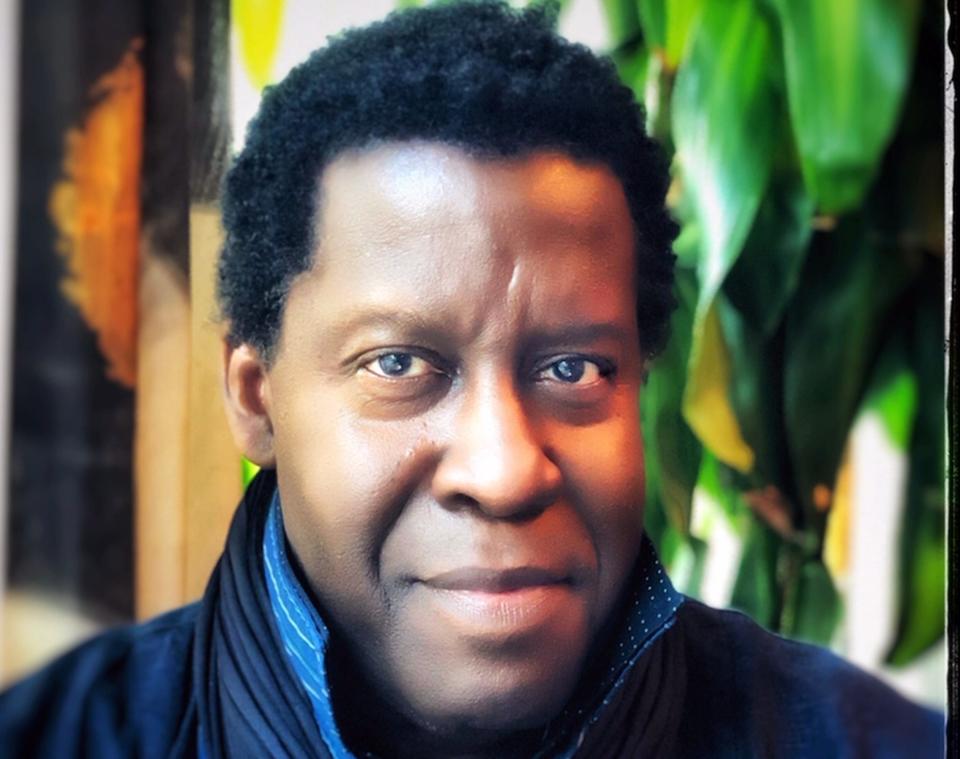
Thompson said there are more than 7,000 Negro spirituals — music that originated with enslaved men, women and children in America.
“I began to collect these spirituals. I have hundreds in my apartment,” Thompson said.
He loves the spirituals so much that Thompson said he felt he had to do something with them.
“I started to work on ‘Jubilee’ as an opera, actually,” Thompson said. “I just wanted it to be nonstop singing with a threading of story through these songs.”
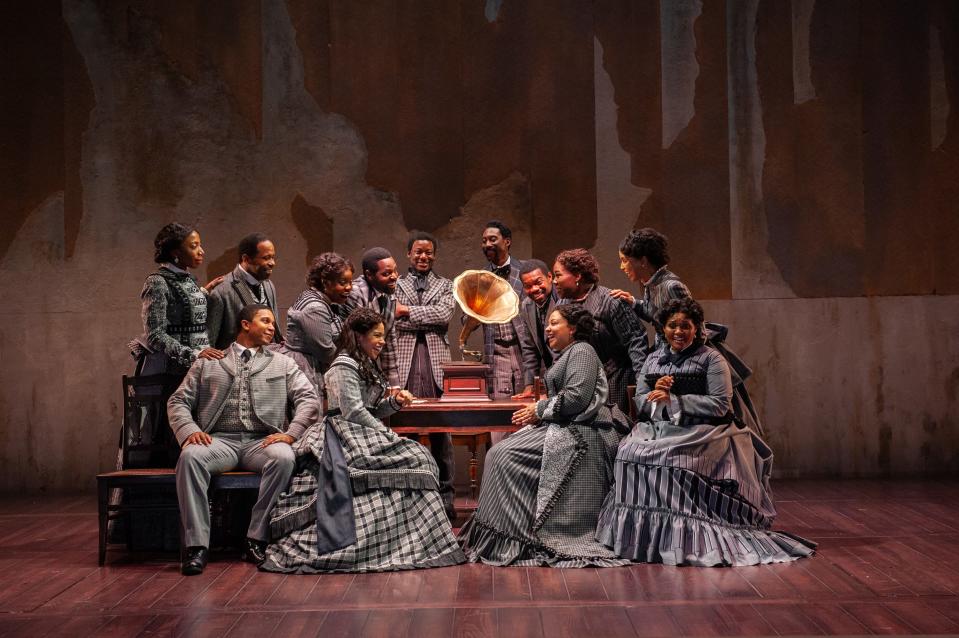
A colleague persuaded him to take a commission on the project, with more dialogue. With that, “Jubilee” premiered in 2019 as an a cappella musical at Arena Stage in Washington, D.C., with more than 40 songs. Thompson said U.S. Rep. John Lewis, who graduated from Fisk University in 1967, was at the opening.
Thompson said Negro spirituals are the “heart, soul and spine” of today’s Black American music.
“Negro spirituals gave birth to all the songs that are in the Black culture — gospel, blues, jazz, hip-hop even, R&B,” Thompson said. “All of that has come from the foundation, the blueprint, the scaffold of Negro spirituals.”
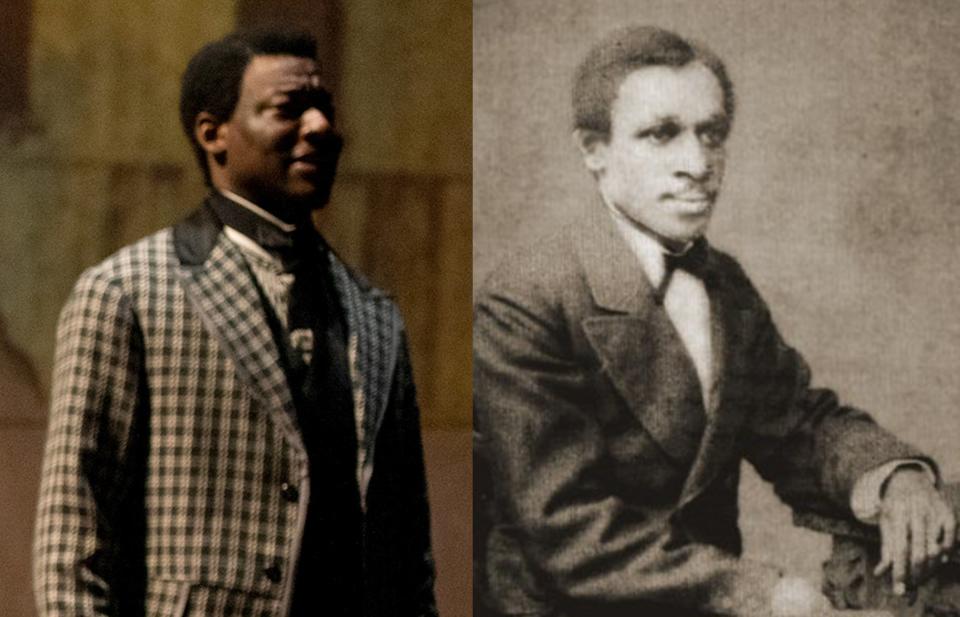
A member of 2019’s original cast, Greg Watkins is in the upcoming production at ASF, reprising his role as freed-slave-turned-student Benjamin Holmes and serving as the assistant director. Watkins grew up singing choral music and Negro spirituals. As a full-time administrator at the Duke Ellington School of the Arts in Washington, D.C., Watkins had a lot to consider before stepping back into “Jubilee.”
“It is indeed a labor of love,” Watkins said. “You learn the depth of determination that these students experienced, and the power of education.”
Thompson said the cast of 13 is talented, and comes from across the country. They were difficult to find. The biggest challenge was to get performers available during the holidays, who wanted to be in the South, who could act, move and dance, and sing with glorious a cappella voices that could hold up in a group.
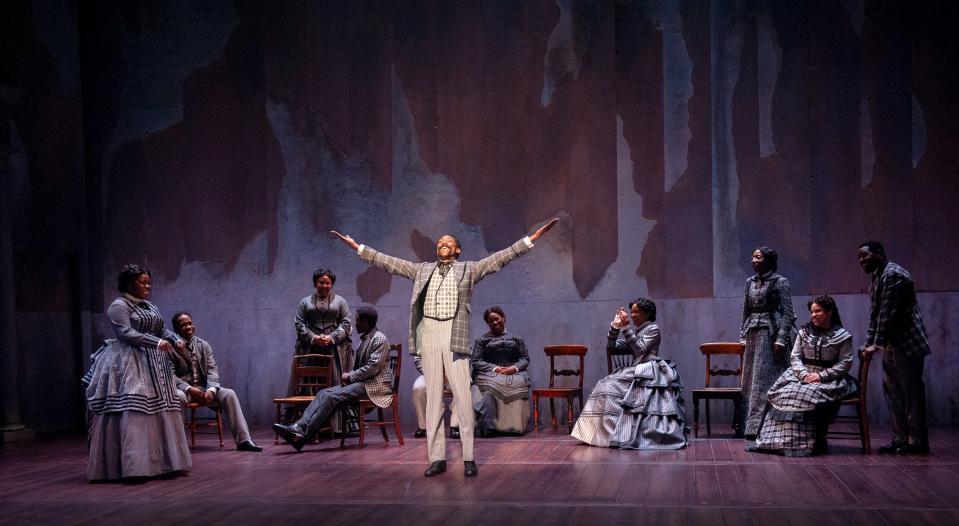
“It’s a young cast, but their voices are really extraordinary,” Thompson said.
So much so that Thompson said the cast doesn’t use microphones.
Watkins said the group has gelled together well, and they’re keeping each other accountable. He said that’s particularly important, since they don’t have stand-ins.
“It’s a true honor to stand with them,” Watkins said. “To stand before them as an original member of the cast.”
When audiences leave “Jubilee,” Thompson hopes they have a better understanding of history and appreciation for this music and what it was built on — faith, pain, anguish, hope, loss, love, joy and struggle.
“I’m hoping that there will be a curiosity to find out more about Negro spirituals in general, and Fisk Jubilee Singers in particular,” Thompson said.
Performances will be held on ASF’s Festival Stage. “Jubilee” is recommended for ages 12 and up. Tickets are available online at asf.net, or by calling the ASF box office at 334-271-5353.
“That show deserves to be seen around the world,” Watkins said.
About the original Jubilee singers
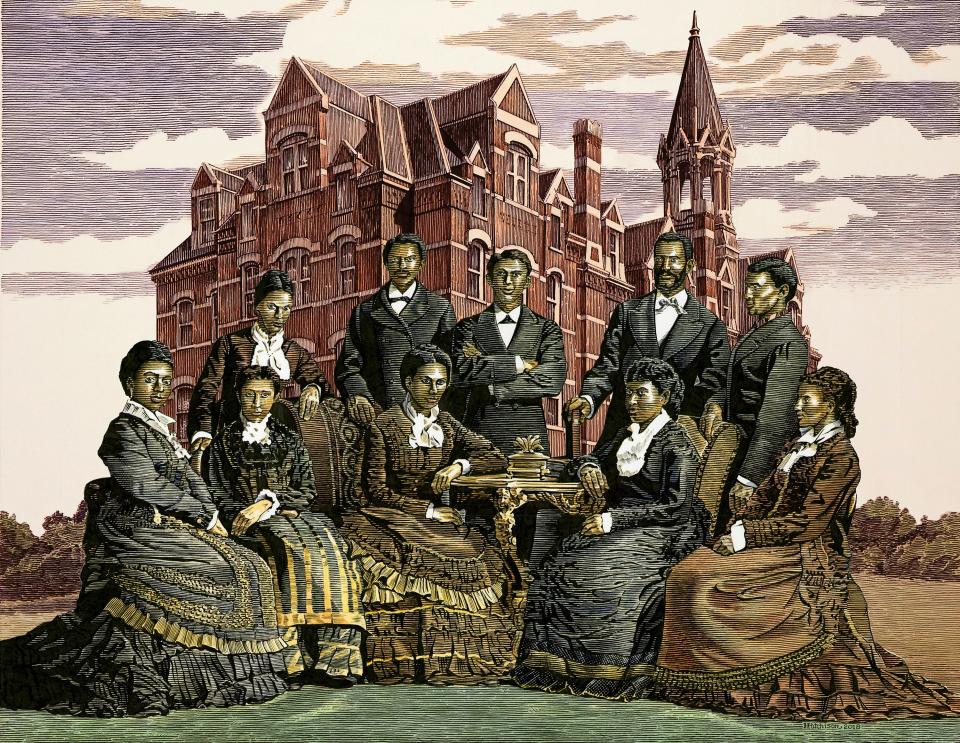
Thompson said “Jubilee” is set in 1871-1875, only about six years after slavery was abolished in the U.S. This was when the group’s first tours began to support Nashville’s Fisk University — founded in 1865 and named for Gen. Clinton B. Fisk of the Tennessee Freedmen’s Bureau.
Five years after it opened, Fisk was in dire financial shape. The university’s treasurer and music professor George L. White created a 9-member choral group and took it on tour to raise funds. The group would earn enough to retire the school’s debt, pay for land in Nashville, and erect Jubilee Hall in 1876 — the first permanent structure for the education of Black students in the South.
Along their way around the world, the group grew and toured Europe. In 1873, they sang for Queen Victoria, who Thompson said was enamored with the singers’ different complexions. The queen commissioned Edmund Havell to create a life-size painting of the Jubilee singers and herself. Today, that painting is on display in Nashville at Jubilee Hall.
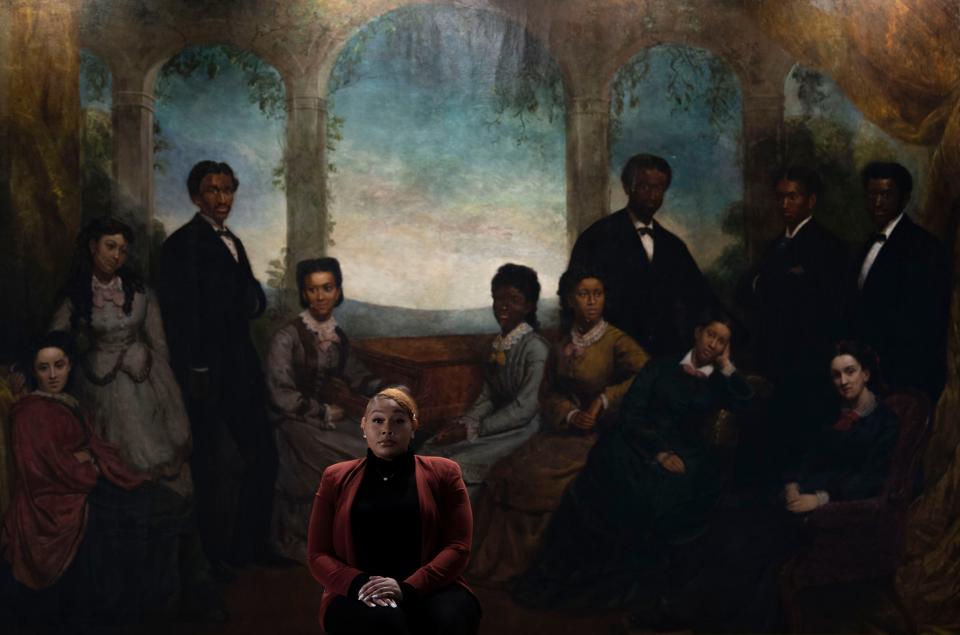
“I’m just fascinated about these extraordinary men and women who went through so many challenges and obstacles,” Thompson said. “Their sole purpose was not to put money in their pockets, or to acquire any kind of fame for themselves. Their sole goal was to raise funds for a school that would be dedicated to people like themselves.”
At first, singing spirituals was not a pleasant experience for the Fisk Jubilee Singers. Thompson said the music brought up painful memories from slavery.
“But they also began to discover as they toured and sang these spirituals, rather than the songs of the day, that’s when the money began pouring in as hats were being passed around,” Thompson said.
Generations of Fisk University Singers have continued performing for 150 years.
The group's latest generation recently lost their longtime musical director. Dr. Paul T. Kwami, 70, died Sept. 10 in Nashville. Thompson described Kwami as a wonderful keeper of the flame.
Though Thompson and Kwami communicated, Kwami didn’t make it to see the “Jubilee” production’s original tour before the pandemic hit and shut theater life off for a couple of years.
“He was really dedicated to keeping the tradition, the legacy alive,” Thompson said.
Montgomery Advertiser reporter Shannon Heupel covers things to do in the River Region. Contact him at sheupel@gannett.com
This article originally appeared on Montgomery Advertiser: Spiritual experience: 'Jubilee' a story of historic a cappella music

